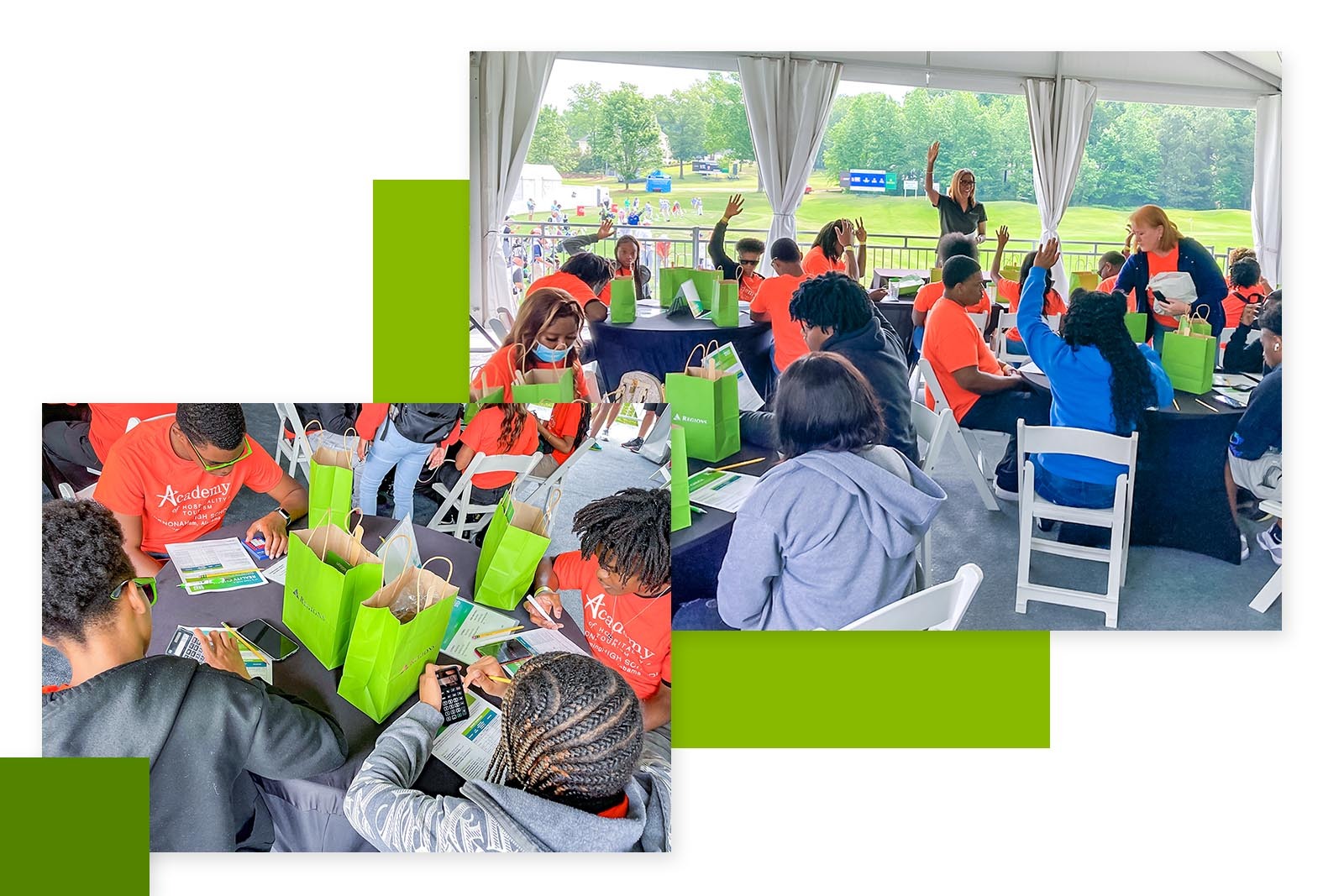With a 30-year history, an annual economic impact of $25 million to local businesses and charitable donations totaling more than $20 million, the Regions Tradition is one of the largest community events in the greater Birmingham area.
What better place for high school students to get a taste of real-world careers in hospitality and tourism?
“We study hospitality and event planning, but being here gives students a real-life experience of what goes into an event on this scale,” said Diann Pilgrim, a teacher in the Hospitality and Tourism Academy at Wenonah High School in Birmingham, Alabama.
This is the second year that senior students from the Academy have had the opportunity to visit the Regions Tradition.

“Everything they see here – from the guests to the vendors – relates to the lessons they’re learning in their hospitality and tourism classes,” said teacher Janai Hodge. “There are a lot of resources out here for the students to observe and use if this is the career path they choose to go down.”
Being here gives students a real-life experience of what goes into an event on this scale. Diann Pilgrim, a teacher in the Hospitality and Tourism Academy
In addition to getting to interact with vendors, spectators and event planning staff, students also participated in a Regions Next Step “Reality Check” facilitated by Cecilia Bailey, Regions Financial Education manager, and Keren Treme, Regions Financial Wellness trainer.
Reality Check is designed to teach students the basics of budgeting, smart money decision-making and what it will really be like to manage their finances when they are adults. Students were assigned a persona and then selected real-life options that directly impacted their budget – such as housing, transportation and entertainment costs.
When asked what they thought about the Reality Check, students admitted it was eye-opening. “It’s a lot,” one of the them said about expenses in the real life scenario, “but I’m learning as I go.” That’s a lesson we can all keep in mind.
Hear more from Cecilia Bailey about how this real-world exercise helps prepare students for financial decisions after graduation.